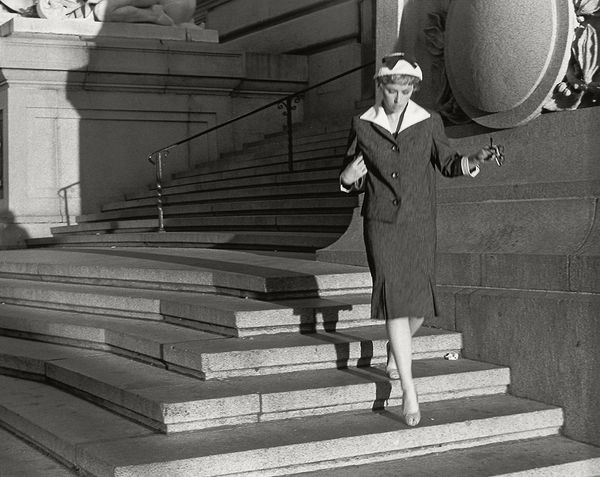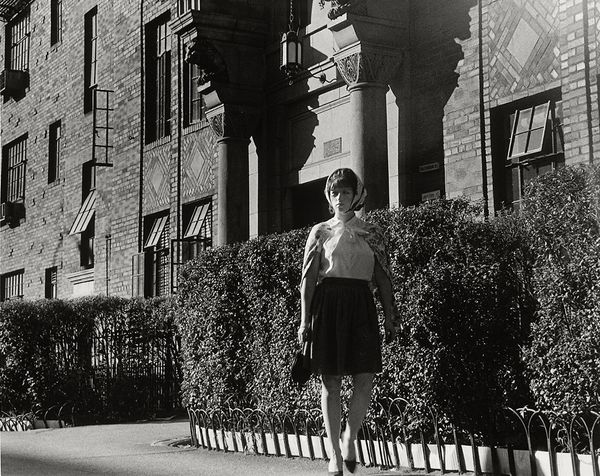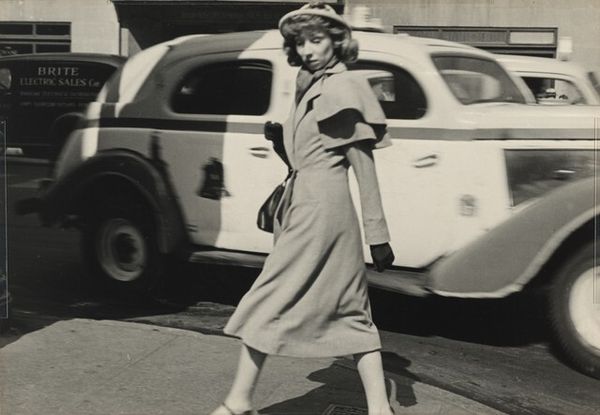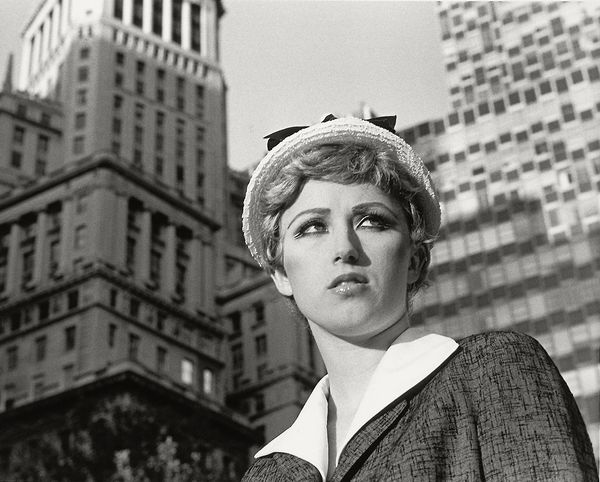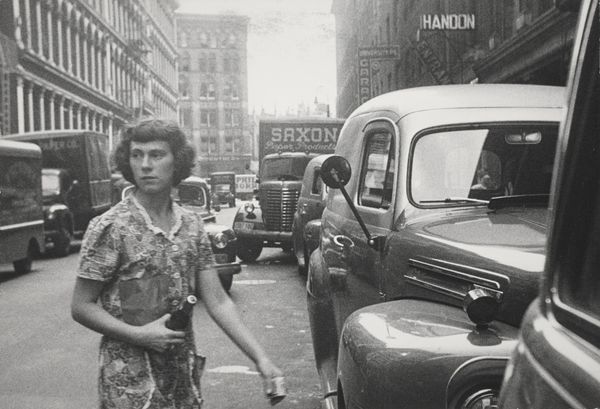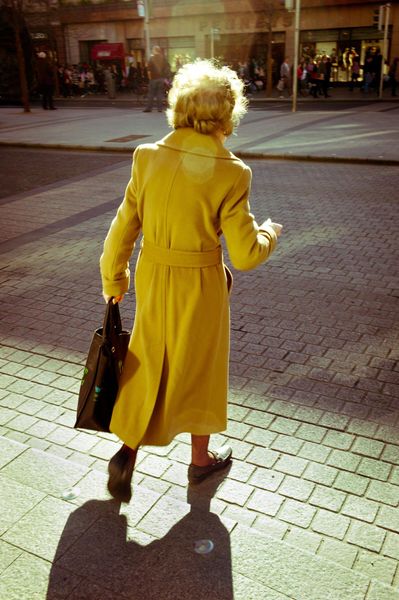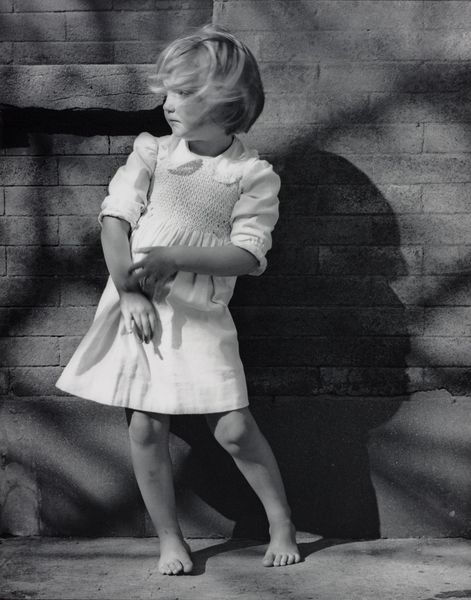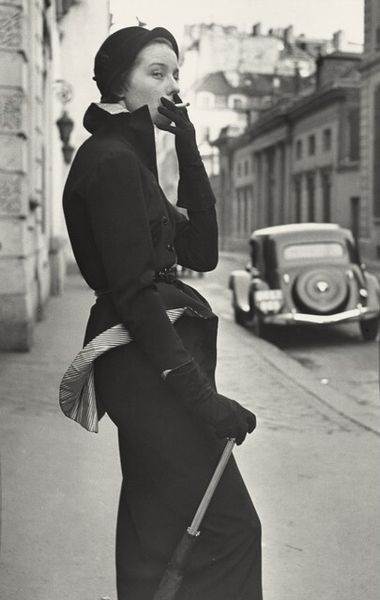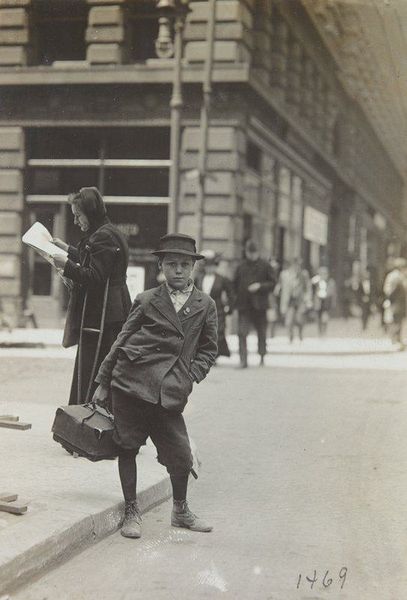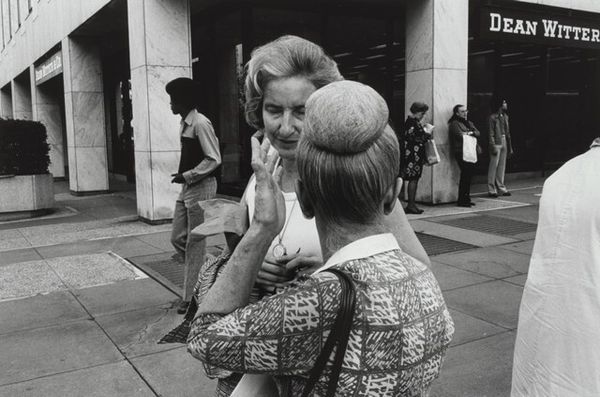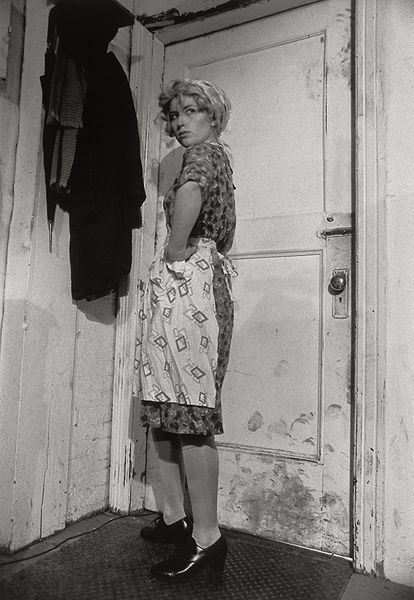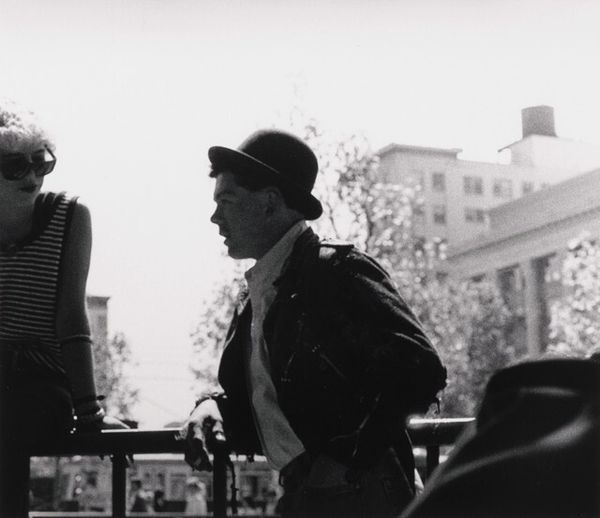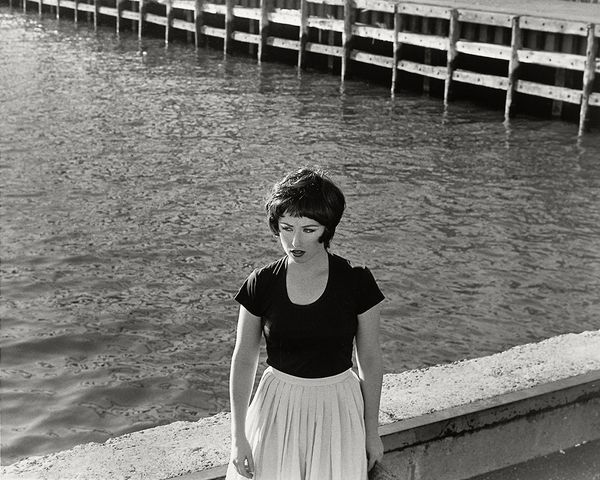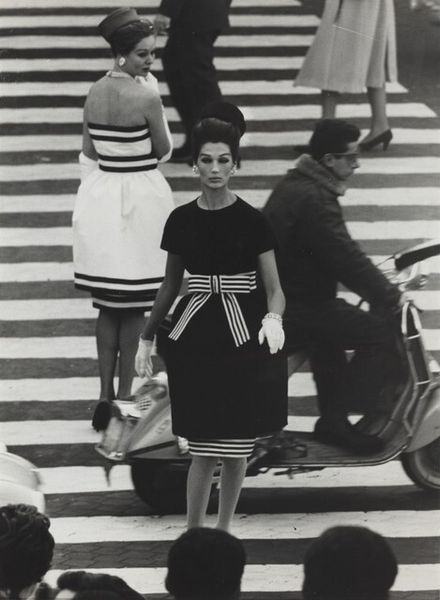
photography
#
portrait
#
self-portrait
#
postmodernism
#
black and white format
#
street-photography
#
photography
#
monochrome photography
#
street photography
#
monochrome
Copyright: Cindy Sherman,Fair Use
Curator: Cindy Sherman's "Untitled Film Still #23" from 1979. It’s part of a series where Sherman photographed herself in stereotypical female roles inspired by film and television. Editor: She looks worried, or maybe just contemplative. It's very noir, with the black and white, that slightly old-fashioned outfit, and the city buildings in the background. There’s a certain melancholic mood. Curator: Exactly. Sherman is playing with our collective visual memory. Think about how film, especially in the mid-20th century, shaped our ideas about female identity and how restrictive it often was. The carefully chosen costume, the way she styles herself… Editor: It feels like she’s playing a part, but we don't know what the film is. Is she the betrayed wife? The ambitious career woman facing sexism? We’re left to fill in the blanks, projecting our own assumptions onto her. Curator: That’s the power of the series, I think. The "Untitled Film Stills" series highlights the ways that women are so often defined by social roles, constructed through a male gaze that prioritizes certain presentations of femininity. Sherman dismantles the notion of an authentic female self by showing it is constructed. Editor: And the title is crucial. “Untitled” points to the ambiguity of identity, which contrasts so vividly with a black and white picture that seems definite in its starkness. By refusing to label, she makes us question all the other labels we apply – or that are applied to us. The street photography feel grounds it in the very real experiences of womanhood. Curator: Precisely. She's not presenting "real" women, but commenting on representation itself, inviting us to challenge the pervasive stereotypes that infiltrate our cultural landscape. This photograph is both a study of one and a statement about many. Editor: It really makes you think about the performative aspect of identity, the way we all "play" roles in our daily lives, consciously or not. I'll be looking at people a little differently now, wondering about their unwritten scripts.
Comments
No comments
Be the first to comment and join the conversation on the ultimate creative platform.
